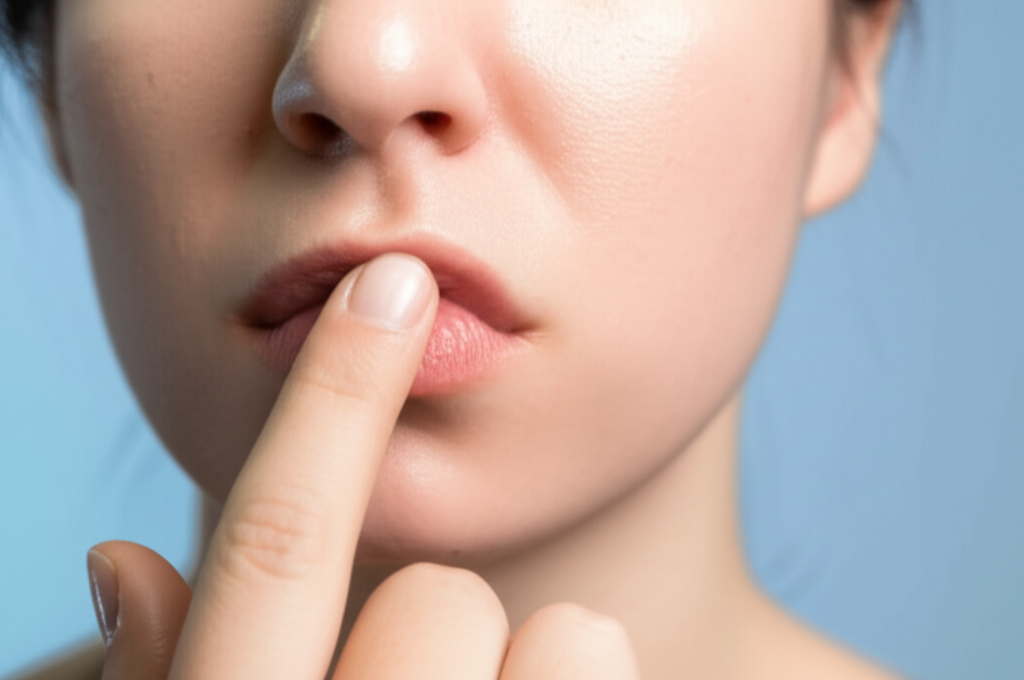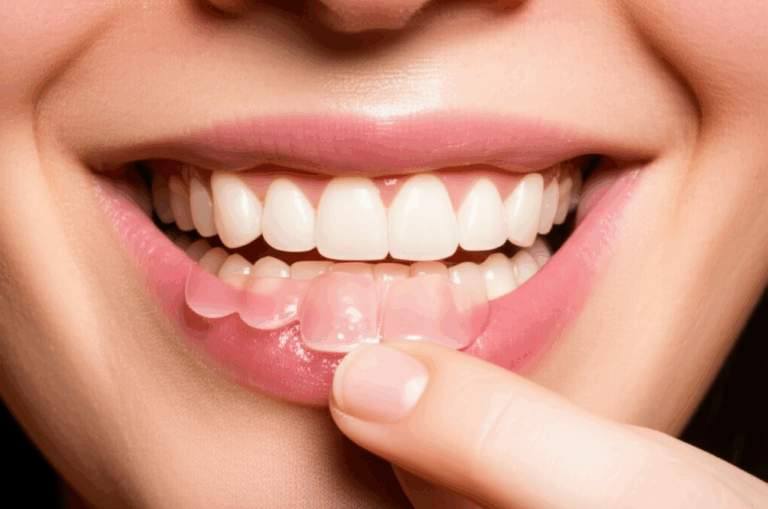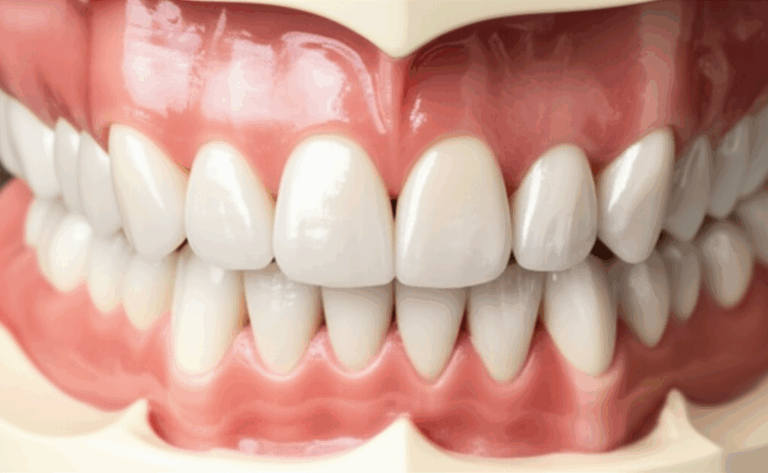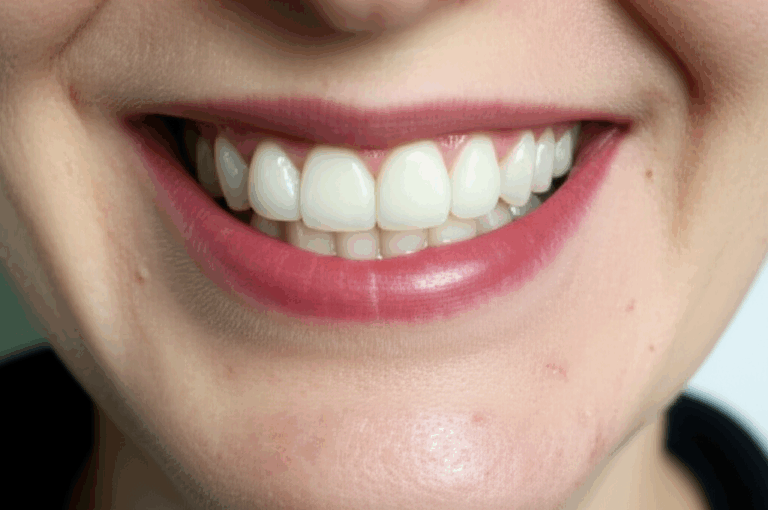
How to Get Rid of a Numb Lip After the Dentist: Quick Tips & What to Expect
Have you ever left your dentist’s office, tried to take a sip of water, and realized you can’t really feel your lip—or worse, you dribble it all over yourself? Maybe you’re worried because hours later, your lip still feels strange and numb. If you’re looking for answers and simple ways to get the feeling back (plus a little peace of mind), you’re in the right place.
Numb lips after dental work are normal and can be annoying, but it’s usually nothing serious. Sometimes, though, this weird feeling sticks around longer than you expect. In this easy guide, you’ll find clear answers—why it happens, how long it usually lasts, what you can do to make it go away faster, and when you should call your dentist.
In This Article
- Why Is My Lip Numb After the Dentist?
- The Science Behind the Numbness: What’s Happening?
- How Long Will My Lip Stay Numb? Typical Timelines
- How to Get Rid of a Numb Lip Faster: Safe Tips
- How to Avoid Accidental Lip Injuries While Numb
- When Should You Call Your Dentist? Red Flags & Warnings
- Why Does Numbness Sometimes Linger? Causes of Persistent Numbness
- What Can Your Dentist Do for Lingering or Severe Numbness?
- How to Prevent Troublesome Numbness Next Time
- Your Healthy Takeaway: Regain Comfort & Confidence
Why Is My Lip Numb After the Dentist?
Picture this: You just finished up at the dentist—maybe you had a filling, a root canal, or even just a cleaning where they numbed a tough spot. Now your lip, chin, or tongue feels prickly, weird, or like it’s not yours. Sound familiar?
You’re not alone! Numb lips from dental visits happen to most people who get numbing shots at the dentist. People always want to know:
- Is this normal?
- How long will it last?
- How can I make it go away faster?
The good news: nearly every time, this numbness is temporary and part of the process. But let’s break down how and why it happens so you can feel better.
The Science Behind the Numbness: What’s Happening?
Let’s make it simple.
What Is Local Anesthesia?
Your dentist uses drugs called local anesthetics—like lidocaine, articaine, bupivacaine, or the old-school novocaine—to stop the pain in your mouth during dental work. It’s kind of like turning off the “wires” for those nerves, so you don’t feel anything.
How Does It Work?
Think of your nerves as tiny cords that carry “pain” and “touch” feelings to your brain. Local anesthesia blocks these cords for a few hours.
Which Nerves Make Your Lip Numb?
- Inferior Alveolar Nerve: Runs in your lower jaw—often numbed during bottom tooth treatments. This also makes your lip and chin numb.
- Mental Nerve: Feeds feeling to your chin and lower lip.
- Lingual Nerve: Gives feeling to the inside of your tongue (often gets numbed too).
If your dentist works close to these nerves, your lip and even your chin or tongue can feel numb.
What Decides How Long Numbness Lasts?
- Type of Anesthetic: Some wear off faster than others (lidocaine: 2-3 hours; articaine: 1-3 hours; bupivacaine: up to 8 hours!).
- How Much Was Used: More medicine, or a stronger one, means longer numbness.
- Where the Shot Went: The closer to a bigger nerve = wider area, and it may last longer.
- Your Own Body: Everyone processes numbing medicine a little different. Your metabolism, blood flow, age, and how sensitive you are all matter.
- Vasoconstrictors: Lots of numbing shots have a bit of adrenaline in them, which keeps blood from washing out the medicine too fast.
If your numb lip sticks around for hours, let’s see what’s normal.
How Long Will My Lip Stay Numb? Typical Timelines
Most people feel numb in the lip, chin, or tongue for 1 to 5 hours after dental work. Here’s about what to expect:
Common Timelines:
- Lidocaine: 2–3 hours (most common numbing shot)
- Articaine: 1–3 hours (used a lot, especially in Europe)
- Novocaine: 2–4 hours (not used much these days)
- Bupivacaine: 4–8 hours (dentists use this for long procedures)
- Kids & Older Folks: Sometimes numbness goes away a little faster, sometimes a bit slower—everyone is different!
If your dental work was tough—like a wisdom tooth pull or a big root canal—the numbness might last a little longer than a small filling.
When Is Numbness Not Normal?
- If your lip is still numb more than 6 to 8 hours later—or you wake up the next day numb—call your dentist.
- New stuff like burning, lots of tingling, or trouble moving your mouth could be a rare but possible problem.
Most of the time, though, you just have to wait. But there are a few things you can do to maybe help it go away sooner.
How to Get Rid of a Numb Lip Faster: Safe Tips
Time is the main thing that helps, but here are a few things that might make the numbing go away a little faster or help you feel better while you wait.
1. Get Your Blood Flowing
- Gentle Massage: Lightly rub the skin near (not right on top of) the numb spot. Good blood flow can help wash out the numbing drugs.
- Warm Compress: Hold a warm, damp towel on your cheek (but don’t put it right on the numb lip if it feels raw). Warmth gets your blood moving.
- Light Movement: Walk around or do some light moving—this helps your blood circulate, which may help.
2. Drink Water
- Drink lots of water. It helps your body process and get rid of the numbing medicine.
3. Numbing Reversal Shots
- Some dentists use an “anesthesia reversal” shot called OraVerse (phentolamine mesylate). This helps you get feeling back faster (sometimes up to twice as quick).
- Downside: Not all dentists have it, and it’s usually not used unless you’re expected to be numb for many hours.
4. Just Wait
- Sometimes, nothing really helps except waiting. Your body will get rid of the medicine naturally—most people feel normal again after a few hours.
IMPORTANT:
Don’t try to “wake up” your lip by biting it, pinching, or poking it! You can hurt yourself and not know it.
How to Avoid Accidental Lip Injuries While Numb
Numb lips can make eating and drinking a mess, but you can also accidentally hurt yourself.
Here’s how to be careful:
- Don’t eat until you can feel your lip again (or, if you must eat, use soft foods on the not-numb side).
- Stay away from hot drinks or soup. It’s easy to burn yourself without even feeling it.
- Use a straw if you need a drink before you’re un-numb.
- Remind children (and sometimes grown-ups too) not to chew on their lips or cheeks while numb.
- Be careful biting: People often bite the inside of their mouth without knowing it, and it leaves a sore that hurts when you do feel again.
Brushing and flossing is okay, just be gentle and don’t brush too hard on the numb side.
When Should You Call Your Dentist? Red Flags & Warnings
Most of the time, numb lips wear off and aren’t a real problem. Still, sometimes it’s important to call your dental office:
Call Your Dentist If:
- Numbness lasts longer than 6-8 hours after something simple (especially if you’re still numb the next day).
- You get new symptoms: lots of pain, burning, nonstop tingling, or shock-like zapping feelings.
- You have swelling, pus, or a fever (maybe an infection).
- You have face weakness—like trouble smiling, moving your mouth, or slurring your words.
- Numbness gets better at first, then gets worse again.
- There’s lots of bruising or bleeding that won’t stop.
- You’re worried, something feels off, or you just want peace of mind—call your dentist! They’d rather hear from you than let you worry alone.
Why Does Numbness Sometimes Linger? Causes of Persistent Numbness
Rarely, numbness can stick around for a long time. Sometimes, the feeling stays for weeks or even months. This is called paresthesia or, less often, dysesthesia (weird or painful feelings after nerve trouble).
What Causes Long-Lasting Numbness?
- Direct Nerve Injury: The numbing needle might bump or damage a nerve (like the inferior alveolar, mental, or lingual nerve).
- Swelling or Bruising: Swelling or a little blood pooling around the nerve can press on it and cause longer numbness.
- Too Much Numbing Medicine: Some medicines, or too much, can upset nerve tissue.
- Dental or Surgical Work: Pulling wisdom teeth and some implants can have a bit higher risk, especially if they’re near big nerves.
- Other Health Problems: Very rarely, issues like diabetes or vitamin shortages can affect nerves.
Most people get all the feeling back—nerves usually heal in weeks or months. But if numbness won’t leave, get it checked by a dentist or doctor.
What Can Your Dentist Do for Lingering or Severe Numbness?
Wondering, “If my lips are still numb, can my dentist help?” For sure. Dentists care if you’re not getting back to normal.
Here’s what might happen at a checkup:
- Careful Look: Your dentist will check for nerve injuries, infection, or something else going on.
- Wait and See: Most of the time, numbness gets better by itself—it just takes a while.
- Medicines: Sometimes, the dentist might give you medicine like ibuprofen or B vitamins because they’re good for nerves.
- Referral: If it’s not getting better, the dentist might send you to a mouth surgeon or nerve doctor for more help.
Special Cases
Your dentist can look at what kind of numbing medicine you got, like bupivacaine or ones with adrenaline, to see if it might be the cause. Next time, they might try another kind if needed.
If you had trouble after implants, extractions, or bigger dental work—especially with numbness that sticks around—your dentist might work with a dental ceramics lab or other specialists to help.
How to Prevent Troublesome Numbness Next Time
If lingering numbness made you stress out last time, you can do a few things next time.
What to Do Before Your Next Visit:
- Talk to Your Dentist: Let them know if you had weird or long-lasting numbness before. They can adjust your numbing medicine.
- Ask About Options: See if you can get a shorter-acting numbing shot, less medicine, or a reversal shot like OraVerse.
- Plan Ahead: If you need to get back to work or look after kids right away, talk with your dentist about ways to get feeling back sooner.
When to Use Numbing Reversal
You don’t need a reversal shot every time, but for long dental appointments, it can be a big help. Your dentist will tell you if it’s an option.
Your Healthy Takeaway: Regain Comfort & Confidence
To sum things up:
Main Things to Remember
- A numb lip after dental work is normal—it means the numbing medicine is working. Most people get full feeling back in 2–5 hours.
- Be patient: Don’t poke, chew, or “test” your lip—it’s easy to hurt yourself while you can’t feel it.
- Fast tips: Gentle massage, warmth, drinking water, and walking can help, but you might just have to wait.
- Be careful: Use your other side to eat or drink, avoid hot stuff, and don’t bite your lip until you can feel it.
- Call if needed: If you’re numb too long, notice new symptoms, or think something is wrong, call your dentist.
- Long numbness is rare, but dentists can help if it happens.
- Talk with your dentist so you’re not worried next time.
Take Charge:
Knowing how dental numbness works can help you relax and be ready for future visits. Always talk with your dentist—they want you to feel safe and comfortable.
Additional Resources
If you’re interested in how dental materials, crown work, or digital tech improves dental comfort, check out these short and useful reads:
- How new digital dental labs make custom dental work better and quicker.
- Find out why a crown and bridge lab helps make long-lasting and comfortable crowns and bridges.
- How 3D dental labs are changing dental care for patients.
FAQs About Numb Lip After Dental Work
Why does my lip stay numb for so long after the dentist?
Usually, it’s just the numbing medicine, but sometimes it lasts longer because of the type of drug, where it was put, or how your body deals with it.
Can it hurt me if my lip is numb for more than a day?
Having a numb lip for longer than usual isn’t common and should be checked, but it’s rarely dangerous. Sometimes it’s just nerve irritation or a little bump. Call your dentist—they’ll know what to do.
Will I always have numb lips this long after future dental visits?
Usually no. Tell your dentist if you had problems before—they can change the plan for next time.
What should I avoid while my lip is numb?
Don’t chew on the numb side, eat or drink hot things, or poke your lip. Treat it like your arm or leg is asleep—wait for it to wake up.
Are kids more likely to bite their lips when numb?
Yes! Parents should watch kids closely after dental visits and let them know not to play with their lips or cheeks.
Bottom Line
Most numb lips from the dentist are short-lived and safe, but they can be weird or annoying. Be patient, follow these tips, and talk to your dentist if you’re not sure about something. Feeling comes back faster than you think, and your great smile will be back soon.
If you have any questions about numbness, numbing shots, or dental work, go ahead and ask your dentist! Your comfort matters.
References:
- American Dental Association (ADA): “Local Anesthesia in Dentistry”
- Consumer Guide to Dentistry: Dental Anesthesia & Numbness
- NHS: “Local Anaesthetic”
- Mayo Clinic: “Dental Nerve Injury – Symptoms and Recovery”
This article is for informational reasons only and does not replace actual dental advice. If you are still numb for a long time or have strange feelings after dental work, call your dentist right away.








